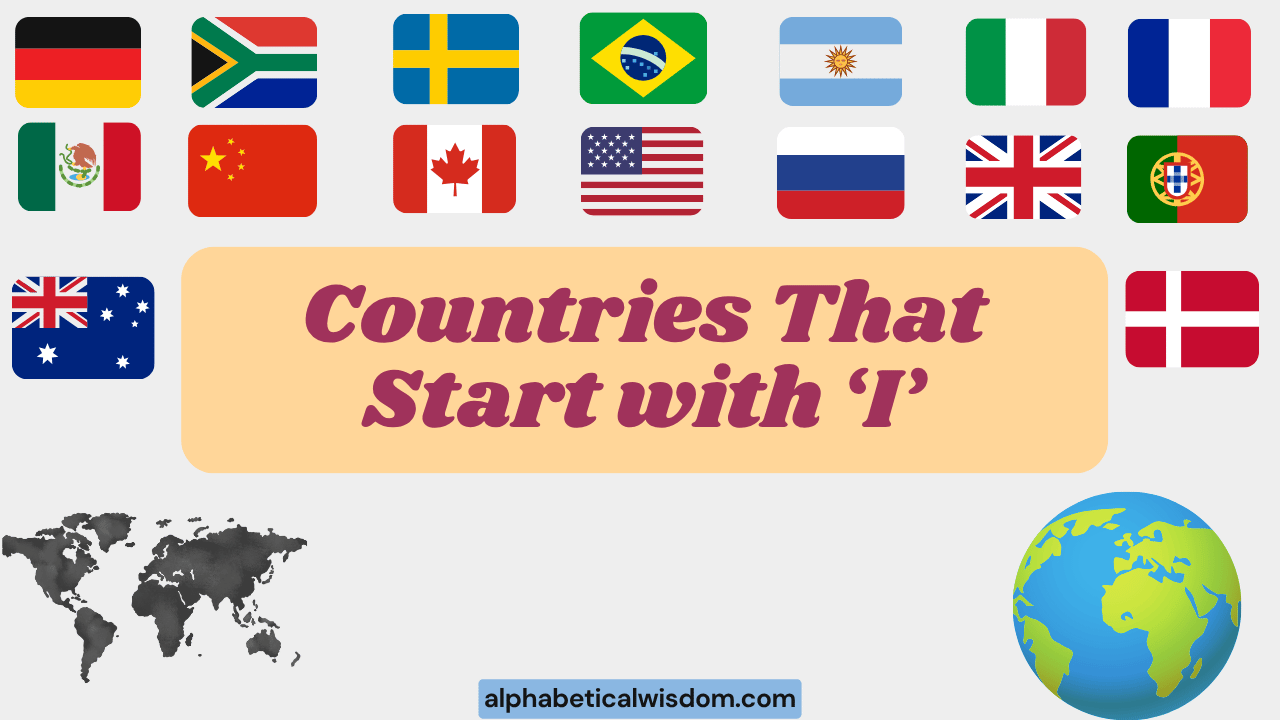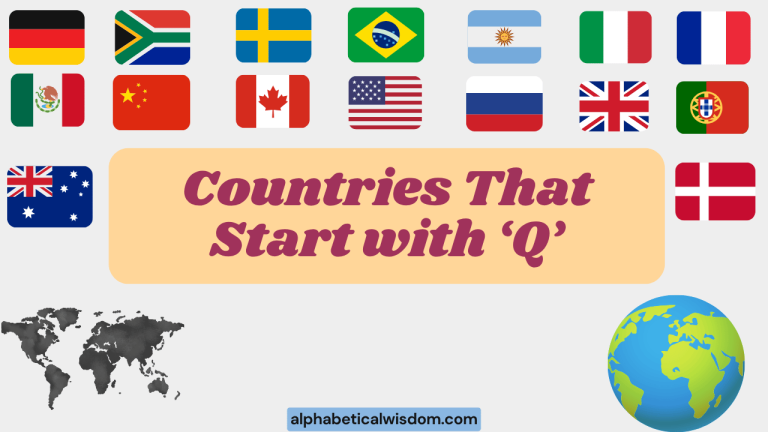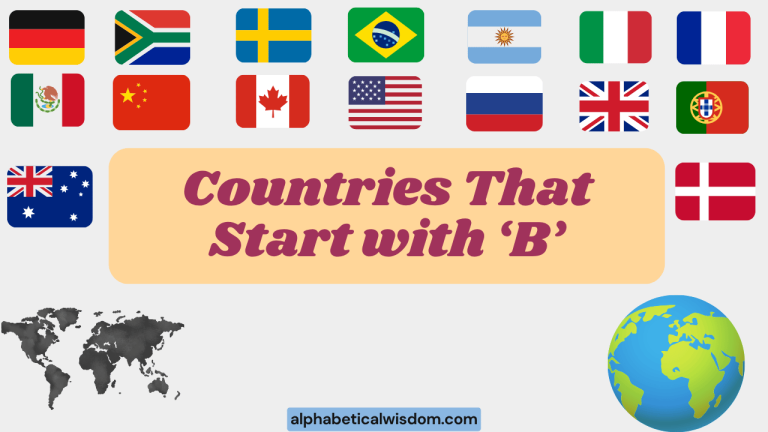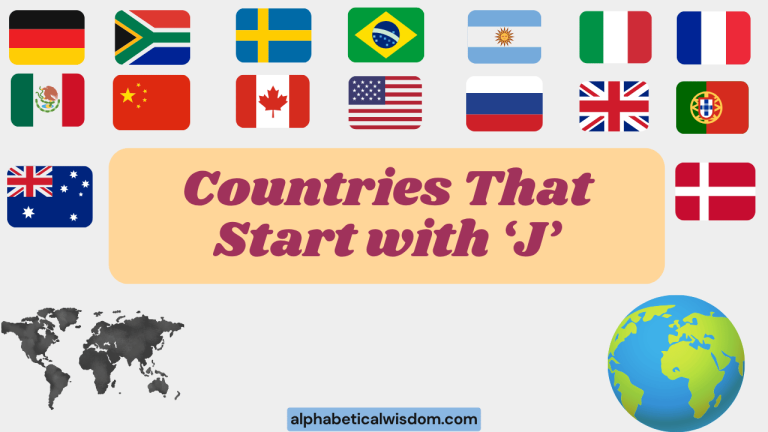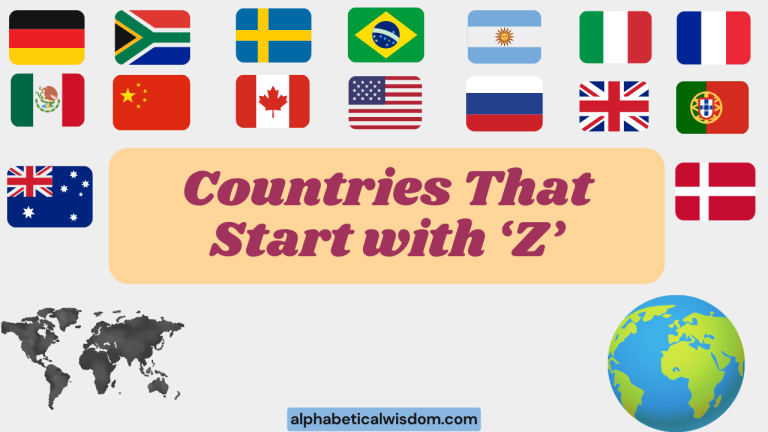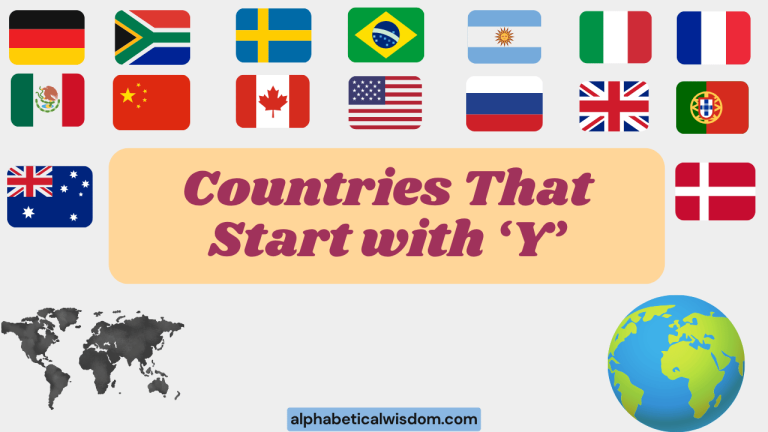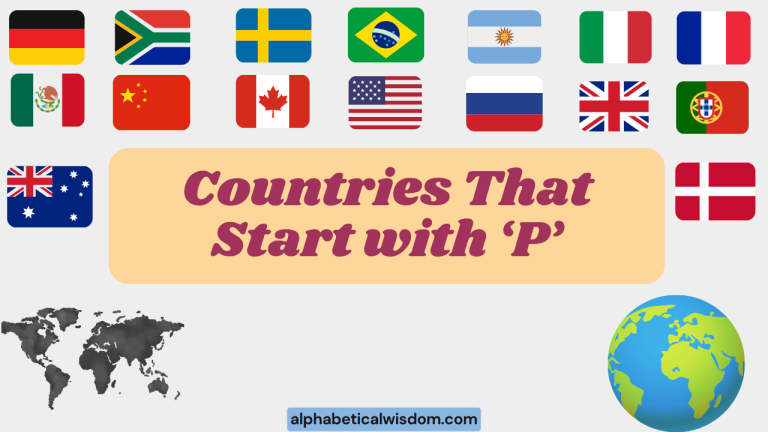Countries Starting With ‘I’: A Grammatical Exploration
Understanding how to use country names correctly is crucial for clear and accurate communication in English. Knowing the grammatical properties of country names that begin with the letter ‘I’ – such as capitalization, article usage, and common adjectival forms – enhances both written and spoken fluency.
This article provides a comprehensive guide to the grammatical nuances of these country names, benefiting English language learners, travelers, and anyone seeking to improve their understanding of geographical and linguistic conventions.
This exploration will cover everything from basic definitions and structural rules to common mistakes and advanced usage scenarios. By the end of this guide, you’ll be well-equipped to use these country names with confidence and precision.
Table of Contents
- Introduction
- Definition: Countries Starting With ‘I’
- Structural Breakdown
- Types and Categories
- Examples of Countries Starting With ‘I’
- Usage Rules
- Common Mistakes
- Practice Exercises
- Advanced Topics
- FAQ
- Conclusion
Definition: Countries Starting With ‘I’
A country name, or toponym, is a proper noun that identifies a specific political entity with defined borders and a recognized government. Countries starting with ‘I’ follow the same grammatical rules as other country names, but it’s helpful to understand their specific usage.
They function primarily as nouns, serving as subjects, objects, or complements within sentences. Their classification falls under the category of proper nouns and geographical terms.
In English grammar, proper nouns are always capitalized, regardless of their position in a sentence. This is a fundamental rule that applies to all country names, including those starting with ‘I’.
The context in which these names are used can vary widely, from formal political discourse to casual conversation about travel or current events.
Understanding the grammatical characteristics of country names is essential for avoiding errors in writing and speech. Correct capitalization, proper article usage (where applicable), and accurate adjectival forms contribute to clear and effective communication.
The following sections will delve into these aspects in greater detail.
Structural Breakdown
The structural breakdown of country names starting with ‘I’ involves several key elements. These include capitalization, the potential need for articles, and the formation of adjectives and demonyms (words for inhabitants).
Understanding these elements is crucial for using these names correctly in various contexts.
Capitalization
As proper nouns, country names must always be capitalized. This rule is absolute and applies universally.
Incorrect capitalization can lead to confusion and detract from the clarity of your writing. For example, writing “india” instead of “India” is a grammatical error.
Article Usage
Most country names do not require a definite article (“the”). However, there are exceptions.
For instance, “the Islamic Republic of Iran” includes the definite article as part of its official name. It is essential to learn which countries require the article and which do not.
Adjective and Demonym Formation
Adjectives derived from country names are used to describe things related to that country. For example, the adjective for “India” is “Indian.” Demonyms are used to refer to the people of a country.
The demonym for “India” is also “Indian” (or sometimes “Indians” when referring to multiple people). Understanding how to form these adjectives and demonyms is important for expanding your vocabulary and expressing yourself accurately.
Types and Categories
While the primary category is simply “countries starting with ‘I’,” we can further classify these countries based on geographical region, economic status, or political system. This classification can be useful for understanding the diverse contexts in which these countries are discussed.
Geographical Region
Countries starting with ‘I’ can be found in various regions of the world. For example, India is located in South Asia, while Ireland is located in Europe.
This geographical diversity influences the cultural, economic, and political characteristics of each country.
Economic Status
Countries may also be categorized by their economic status, such as developed, developing, or emerging economies. India, for example, is often considered an emerging economy due to its rapid growth and increasing global influence.
Ireland is considered a developed economy with a high standard of living.
Political System
The political system of a country can also be a basis for classification. Countries may be democracies, republics, monarchies, or other forms of government.
The political system influences the laws, policies, and international relations of each country. Iran, for example, is an Islamic Republic.
Examples of Countries Starting With ‘I’
This section provides extensive examples of how to use country names starting with ‘I’ in sentences. These examples are categorized to illustrate different grammatical contexts and usage scenarios.
Pay close attention to capitalization, article usage, and the formation of adjectives and demonyms.
Table 1: Basic Examples
This table provides basic examples of sentences using country names starting with the letter “I”. It covers various sentence structures and contexts to illustrate proper usage.
| Sentence | Notes |
|---|---|
| India is a country in South Asia. | Basic statement of fact. |
| I am planning a trip to Ireland next year. | Expressing a future plan. |
| The capital of Iran is Tehran. | Stating a capital city. |
| Iceland is known for its stunning landscapes. | Describing a characteristic of a country. |
| The economy of Italy is one of the largest in Europe. | Mentioning economic status. |
| I have always wanted to visit Israel. | Expressing a desire to travel. |
| The culture of Indonesia is very diverse. | Talking about cultural aspects. |
| Iraq has a rich history. | Referring to historical facts. |
| The population of India is over one billion. | Stating demographic information. |
| Ireland is an island nation. | Describing geographical features. |
| The government of Iran is an Islamic republic. | Describing political systems. |
| Iceland is a Nordic country. | Classifying by region. |
| I studied abroad in Italy. | Sharing personal experiences. |
| The conflict in Israel is ongoing. | Discussing current events. |
| Indonesia is an archipelago. | Describing geographical features. |
| The ancient civilization of Iraq was in Mesopotamia. | Referring to ancient history. |
| Many people speak Hindi in India. | Mentioning languages spoken. |
| Ireland is famous for its folklore. | Describing cultural aspects. |
| The history of Iran is fascinating. | Referring to historical facts. |
| Iceland has many active volcanoes. | Describing geographical features. |
| I love Italian food. | Using the adjectival form. |
| The situation in Israel is complex. | Discussing current events. |
| Indonesia is a large country. | Basic statement of fact. |
| Iraq is in the Middle East. | Describing geographical location. |
| The Ganges River flows through India. | Describing geographical features. |
| Ireland is known as the Emerald Isle. | Describing nicknames. |
| Iran is known for its carpets. | Describing cultural items. |
Table 2: Adjective and Demonym Examples
This table focuses on the use of adjectives and demonyms derived from country names. It demonstrates how to correctly describe things and people associated with these countries.
| Country | Adjective | Demonym | Example Sentence |
|---|---|---|---|
| India | Indian | Indian | I enjoy Indian cuisine. Many Indians live abroad. |
| Ireland | Irish | Irish | The Irish flag is green, white, and orange. Many Irish people celebrate St. Patrick’s Day. |
| Iran | Iranian | Iranian | Iranian art is beautiful. Many Iranians are skilled artisans. |
| Iceland | Icelandic | Icelander | Icelandic sagas are famous. An Icelander wrote this book. |
| Italy | Italian | Italian | I am learning the Italian language. Many Italians are passionate about food. |
| Israel | Israeli | Israeli | Israeli technology is advanced. Many Israelis serve in the military. |
| Indonesia | Indonesian | Indonesian | Indonesian coffee is very popular. Many Indonesians live on Java. |
| Iraq | Iraqi | Iraqi | Iraqi dates are delicious. Many Iraqis are rebuilding their country. |
| India | Indian | Indian | Indian spices are used worldwide. |
| Ireland | Irish | Irish | Irish music is lively. |
| Iran | Iranian | Iranian | Iranian culture is rich. |
| Iceland | Icelandic | Icelander | Icelandic horses are small. |
| Italy | Italian | Italian | Italian cars are stylish. |
| Israel | Israeli | Israeli | Israeli innovation is impressive. |
| Indonesia | Indonesian | Indonesian | Indonesian islands are beautiful. |
| Iraq | Iraqi | Iraqi | Iraqi history is ancient. |
| India | Indian | Indian | Indian weddings are elaborate. |
| Ireland | Irish | Irish | Irish pubs are popular. |
| Iran | Iranian | Iranian | Iranian films are acclaimed. |
| Iceland | Icelandic | Icelander | Icelandic winters are harsh. |
| Italy | Italian | Italian | Italian fashion is influential. |
| Israel | Israeli | Israeli | Israeli agriculture is advanced. |
| Indonesia | Indonesian | Indonesian | Indonesian dances are captivating. |
| Iraq | Iraqi | Iraqi | Iraqi poetry is profound. |
Table 3: Complex Sentence Examples
This table demonstrates the use of country names in more complex sentence structures, including clauses and phrases. These examples showcase how to integrate these names into more sophisticated writing.
| Sentence | Notes |
|---|---|
| Although India is a large country, it has a relatively low per capita income. | Using a subordinating conjunction. |
| Because I have always wanted to visit Ireland, I am saving money for a trip. | Expressing a reason. |
| Despite the challenges, Iran has maintained its cultural identity. | Using a prepositional phrase of contrast. |
| Since Iceland is located near the Arctic Circle, it experiences long periods of darkness in the winter. | Explaining a geographical consequence. |
| While Italy is known for its historical sites, it also has beautiful beaches. | Contrasting two aspects of a country. |
| Because of the ongoing conflict, Israel faces many security challenges. | Explaining a political situation. |
| Because Indonesia is an archipelago, it has a diverse range of cultures. | Explaining geographical diversity. |
| Although Iraq has suffered from conflict, it has a rich history. | Contrasting recent struggles with historical significance. |
| India, with its diverse population, offers a rich cultural experience. | Using an appositive phrase. |
| Ireland, known for its green landscapes, attracts many tourists. | Using an appositive phrase. |
| Iran, despite its political isolation, has a vibrant arts scene. | Using an appositive phrase. |
| Iceland, with its geothermal activity, is a source of renewable energy. | Using an appositive phrase. |
| Italy, famous for its cuisine, is a popular tourist destination. | Using an appositive phrase. |
| Israel, known for its technological innovation, is a leader in the tech industry. | Using an appositive phrase. |
| Indonesia, with its many islands, is a biodiversity hotspot. | Using an appositive phrase. |
| Iraq, the cradle of civilization, has a long and complex history. | Using an appositive phrase. |
| If you travel to India, be sure to visit the Taj Mahal. | Conditional sentence. |
| If you visit Ireland, make sure to explore the countryside. | Conditional sentence. |
| If you ever go to Iran, try the local cuisine. | Conditional sentence. |
| If you are in Iceland, see the Northern Lights. | Conditional sentence. |
| If you travel to Italy, visit Rome. | Conditional sentence. |
| If you go to Israel, visit Jerusalem. | Conditional sentence. |
| If you travel to Indonesia, visit Bali. | Conditional sentence. |
| If you visit Iraq, learn about its history. | Conditional sentence. |
Usage Rules
There are specific rules governing the proper use of country names starting with ‘I’. These rules cover capitalization, article usage, adjective and demonym formation, and special cases or exceptions.
Adhering to these rules is essential for clear and accurate communication.
Capitalization Rules
Capitalize the first letter of the country name, as it is a proper noun. For example, write “India” not “india.” This rule applies regardless of the country name’s position in the sentence.
Article Usage Rules
Most country names do not require the definite article “the.” However, some exceptions exist. For example, “the Islamic Republic of Iran” includes “the” as part of its official name.
Always check the official name to determine if the article is required.
Adjective and Demonym Formation Rules
Adjectives are typically formed by adding suffixes such as “-an,” “-ian,” “-ese,” or “-ish” to the country name. For example, “India” becomes “Indian.” Demonyms usually follow a similar pattern.
However, there are exceptions, so it’s best to consult a dictionary or grammar guide when in doubt.
Special Cases and Exceptions
Some country names have irregular adjective and demonym forms. For example, the demonym for “Iceland” is “Icelander,” which is not immediately obvious.
Be aware of these exceptions and learn them individually.
Common Mistakes
English language learners often make common mistakes when using country names. These mistakes can include incorrect capitalization, improper article usage, and errors in adjective and demonym formation.
This section highlights these mistakes and provides correct examples.
Incorrect Capitalization
Incorrect: i want to visit india.
Correct: I want to visit India.
Country names, being proper nouns, always require capitalization.
Improper Article Usage
Incorrect: I am going to Iran.
Correct: I am going to the Islamic Republic of Iran.
Some country names officially include “the” as part of their name.
Errors in Adjective and Demonym Formation
Incorrect: I like Italy food.
Correct: I like Italian food.
Use the correct adjective form to describe things related to a country.
Incorrect: The people from Iceland are called Icelandians.
Correct: The people from Iceland are called Icelanders.
Use the correct demonym to refer to the people of a country.
Practice Exercises
These practice exercises will help you reinforce your understanding of how to use country names starting with ‘I’ correctly. Each exercise focuses on a different aspect of grammar, such as capitalization, article usage, and adjective formation.
Exercise 1: Capitalization
Instructions: Correct the capitalization in the following sentences.
| Question | Answer |
|---|---|
| 1. i want to travel to ireland. | 1. I want to travel to Ireland. |
| 2. the capital of italy is rome. | 2. The capital of Italy is Rome. |
| 3. india has a rich culture. | 3. India has a rich culture. |
| 4. iceland is a beautiful country. | 4. Iceland is a beautiful country. |
| 5. iran has a long history. | 5. Iran has a long history. |
| 6. israel is a country in the middle east. | 6. Israel is a country in the Middle East. |
| 7. indonesia is an archipelago. | 7. Indonesia is an archipelago. |
| 8. iraq is in the middle east. | 8. Iraq is in the Middle East. |
| 9. he is from india. | 9. He is from India. |
| 10. she visited italy last year. | 10. She visited Italy last year. |
Exercise 2: Article Usage
Instructions: Fill in the blanks with “the” if necessary. If no article is needed, leave the blank empty.
| Question | Answer |
|---|---|
| 1. I am studying about _______ Islamic Republic of Iran. | 1. the |
| 2. She is traveling to _______ India. | 2. |
| 3. He lives in _______ Ireland. | 3. |
| 4. They visited _______ Italy last summer. | 4. |
| 5. _______ Iceland is known for its glaciers. | 5. |
| 6. We learned about _______ Iraq in history class. | 6. |
| 7. I want to visit _______ Israel. | 7. |
| 8. _______ Indonesia is a large country. | 8. |
| 9. He is from _______ Iran. | 9. |
| 10. She is going to _______ India next year. | 10. |
Exercise 3: Adjective and Demonym Formation
Instructions: Fill in the blanks with the correct adjective or demonym.
| Question | Answer |
|---|---|
| 1. He enjoys _______ (India) food. | 1. Indian |
| 2. She is an _______ (Ireland) citizen. | 2. Irish |
| 3. They are learning _______ (Italy) language. | 3. Italian |
| 4. He is an _______ (Iceland) writer. | 4. Icelandic |
| 5. She is from _______ (Iran). She is _______. | 5. Iran, Iranian |
| 6. _______ (Israel) technology is very advanced. | 6. Israeli |
| 7. _______ (Indonesia) islands are beautiful. | 7. Indonesian |
| 8. _______ (Iraq) history is ancient. | 8. Iraqi |
| 9. I met an _______ (Iceland) today. | 9. Icelander |
| 10. He is a _______ (Italy). | 10. Italian |
Advanced Topics
For advanced learners, understanding the nuances of how country names are used in more complex linguistic and political contexts can be beneficial. This includes exploring the historical evolution of country names, their usage in international relations, and their representation in literature and art.
Historical Evolution of Country Names
Many country names have evolved over time, reflecting changes in political boundaries, cultural identities, and linguistic conventions. Understanding these historical changes can provide insights into the complex relationships between language, history, and geography.
For example, the name “Iran” has its roots in ancient Persia, reflecting a long and rich history.
Usage in International Relations
Country names are often used in international relations to refer to specific political entities. The way these names are used can reflect diplomatic relations, political alliances, and historical grievances.
For example, the official name used by one country to refer to another can be a sensitive issue with political implications.
Representation in Literature and Art
Country names are frequently used in literature and art to evoke specific cultural, historical, or geographical associations. The way these names are represented can reflect the author’s or artist’s perspective on the country and its people.
For example, a novel set in India might use vivid descriptions of the country’s landscapes, cultures, and social issues.
FAQ
This section addresses frequently asked questions about using country names starting with ‘I’ in English.
- Why do some country names require the article “the”?
- How do I form the adjective for a country name?
- What is a demonym, and how do I form it?
- Are country names always capitalized?
- What should I do if I’m unsure about the correct adjective or demonym for a country?
- Why is it important to use country names correctly?
- Can the meaning of a sentence change if I use the wrong adjective or demonym?
- Are there any online resources that can help me learn more about country names and their grammar?
- Is it acceptable to use informal names for countries?
- How do I handle country names with multiple words?
Some country names require “the” because it is part of their official name, often indicating a specific political structure or historical context. For instance, “the Islamic Republic of Iran” includes “the” in its official designation.
These are exceptions and must be memorized.
Adjectives are typically formed by adding suffixes like “-an,” “-ian,” “-ese,” or “-ish” to the country name (e.g., “India” becomes “Indian”). However, there are exceptions, so it’s best to consult a dictionary or grammar guide.
A demonym is a word used to refer to the people of a country (e.g., “Indian” for people from India). Demonyms often follow similar patterns as adjectives but can also have irregular forms (e.g., “Icelander” for people from Iceland).
Yes, country names are proper nouns and must always be capitalized, regardless of their position in a sentence.
When in doubt, consult a reliable dictionary or grammar guide. These resources will provide the correct forms and usage examples.
Using country names correctly demonstrates respect for different cultures and political entities. It also ensures clear and accurate communication, avoiding potential misunderstandings.
Yes, using the wrong adjective or demonym can significantly alter the meaning of a sentence, leading to confusion or misinterpretation. For example, saying “Italy food” instead of “Italian food” makes the sentence grammatically incorrect and unclear.
Yes, many online resources can help you learn more about country names and their grammar, including online dictionaries, grammar guides, and language learning websites. These resources often provide detailed information, examples, and practice exercises.
While informal names exist, it’s generally best to use the official name in formal writing and speech to avoid any ambiguity or disrespect. Informal names may be acceptable in casual conversations among friends.
Capitalize the first letter of each main word in the country name (e.g., “the Islamic Republic of Iran”). Be sure to include “the” if it’s part of the official name.
Conclusion
Mastering the grammatical nuances of country names starting with ‘I’ is essential for effective communication in English. This article has provided a comprehensive guide to the capitalization, article usage, adjective and demonym formation, and common mistakes associated with these names.
By understanding and applying these rules, you can enhance your fluency and accuracy in both written and spoken English.
Remember to always capitalize country names, be mindful of article usage, and learn the correct adjective and demonym forms. Practice these rules regularly, and consult reliable resources when in doubt.
With consistent effort, you’ll be able to use country names with confidence and precision, improving your overall language proficiency.
